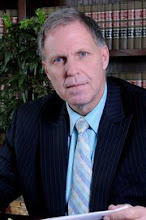The Texas Supreme Court refused on May 11 to review the constitutionality of a Dallas trial judge's decision to deny a television station permission to videotape a court case allegedly because the television station had previously broadcast stories critical of the judge.
The nine-member court denied the petition for review without comment. Justice Nathan Hecht, joined by Justice Priscilla Owen, dissented from the denial of review, noting that the trial court's "order may be a significant intrusion on KTVT's constitutional rights. . . . This court's summary denial of KTVT's petition, given the significance of the press's interest here, is to me inexplicable."
The case concerns trial judge Jim Pruitt's July 1999 refusal to allow Dallas-Fort Worth CBS affiliate KTVT-TV to film court proceedings through the courtroom's back door window. According to the television station, Pruitt's court coordinator explained to the station that its request had been denied because of prior negative stories that had been broadcast about Pruitt. Pruitt's bailiff later allegedly told another station that it could film through the window so long as they were not KTVT.
Pruitt then denied the station's motion for reconsideration from the bench. "I don't think KTVT is a reputable news organization, and as such, I'm not going to allow you to film," he said, according to court records quoted by the Associated Press.
The AP reported that Pruitt's reaction may have been prompted by an Emmy-award winning November 1998 story about lazy judges that accused Pruitt of spending part of a work day in a bar. Another judge mentioned in the 1998 broadcast has sued the television station for libel, according to the AP.
The station had argued to the court that its First Amendment right to cover a criminal trial had been violated by Pruitt's decision. The station's attorney, Roger Diseker, told the AP that Pruitt's action was a "clear violation of the First Amendment" and that it "does not bode well for the press when a judge can retaliate against the media for a negative story."
http://www.dwicriminaldefenselawyer.com/
http://www.sloanelaw.com
Wednesday, December 17, 2008
Subscribe to:
Post Comments (Atom)


No comments:
Post a Comment